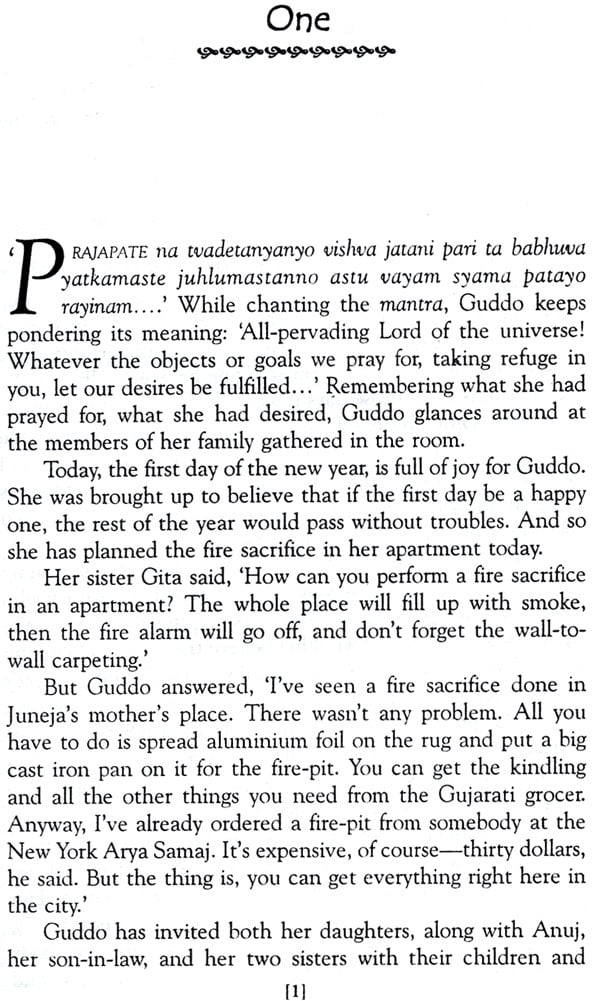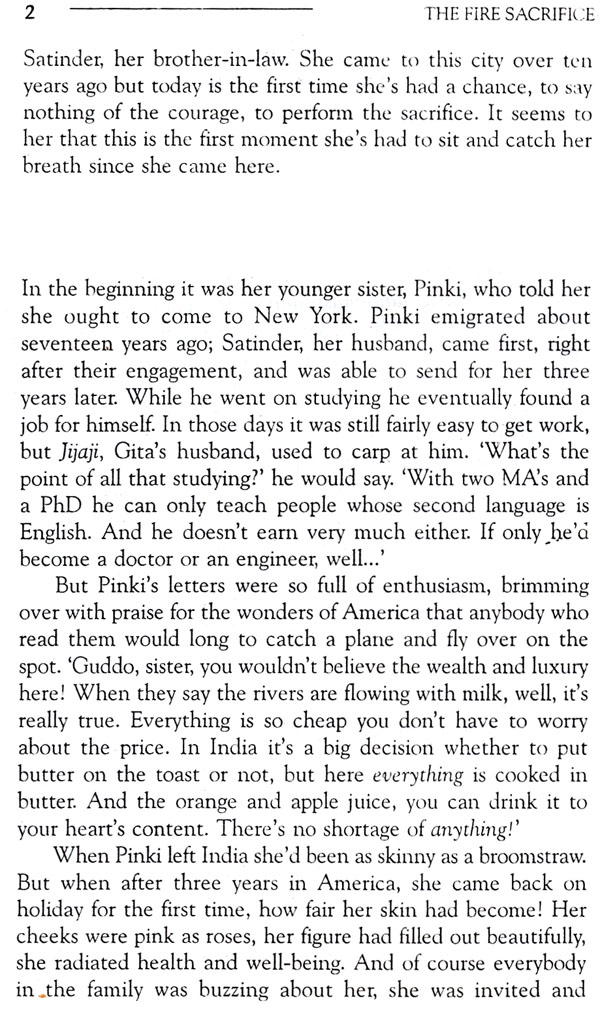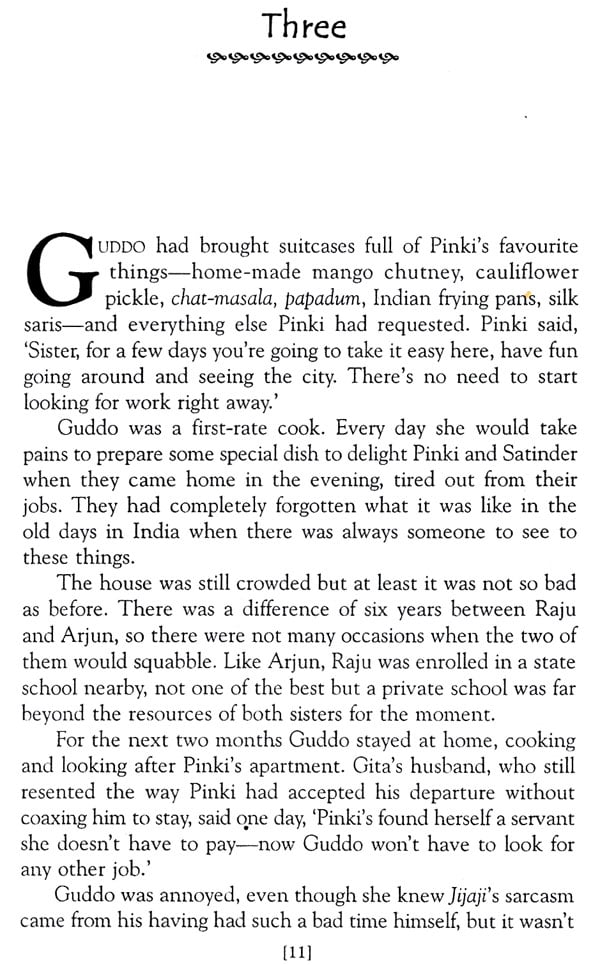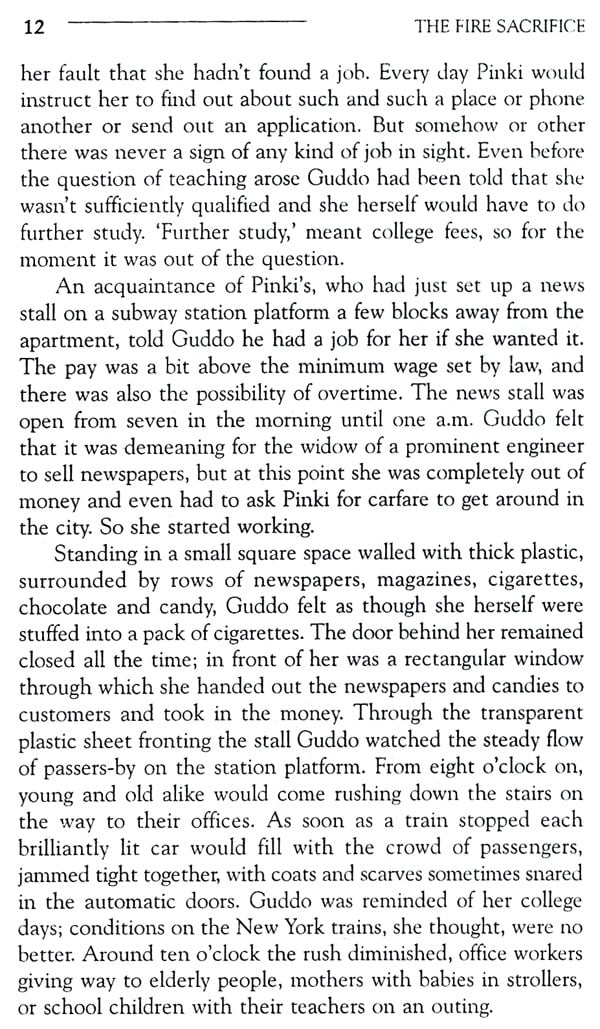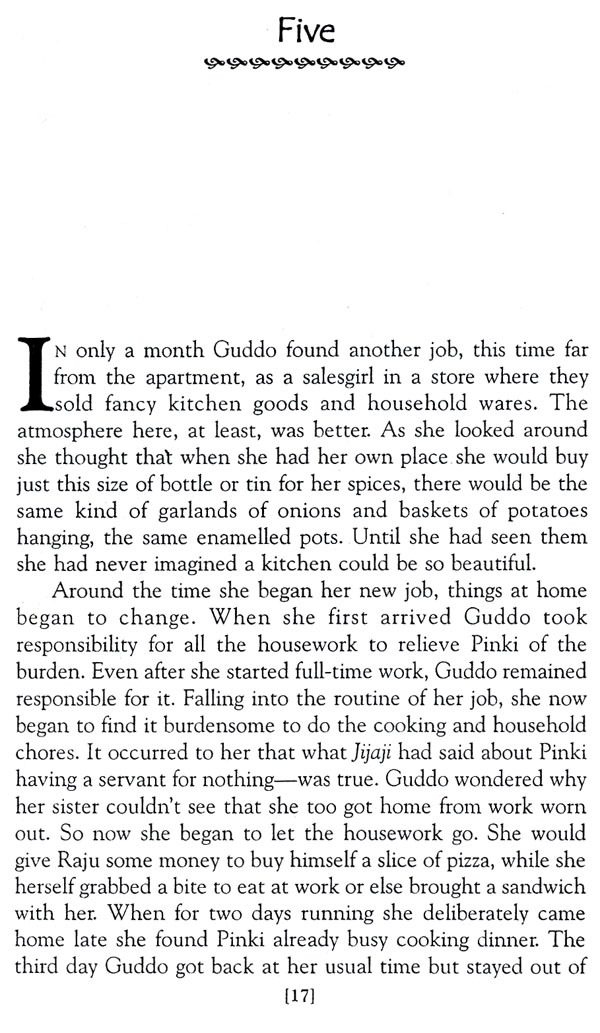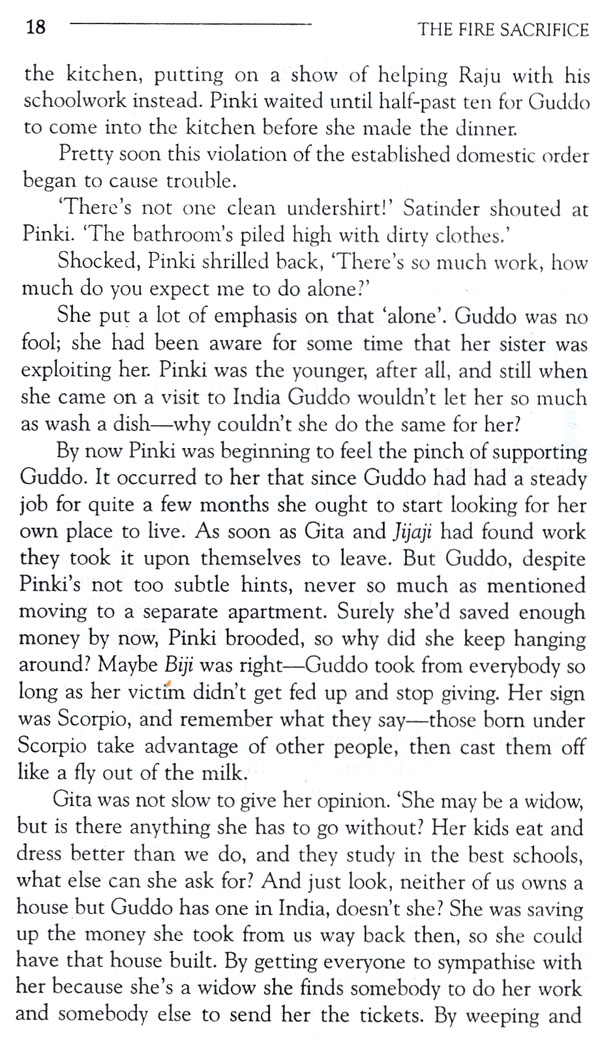
The Fire Sacrifice
Book Specification
| Item Code: | NAT928 |
| Author: | Susham Bedi |
| Publisher: | Books India International, New Delhi |
| Language: | ENGLISH |
| Edition: | 2006 |
| ISBN: | 9788189129194 |
| Pages: | 104 |
| Cover: | HARDCOVER |
| Other Details | 9.00 X 5.50 inch |
| Weight | 350 gm |
Book Description
Susham Bedi's first novel,The Fire Sacrifice,is in the tradition of social realism in Hindi fiction that began with Premchand about the time of the First World War. Premchand and his contempor-aries in other regional languages devoted most of their attention to the problems of the underprivileged, but in the period following Indian Independence in 1947 novelists have been more preoccupied with the middle classes, their alienation, and the tension between modernisation and conservative religious values. Susham Bedi brings her own originality to bear on the tradition, both by treating the particular problems and cultural conflicts of Indians who have migrated to the West 'Everything that was tender, fragrant, fresh and pure...All turned to ashes...Had she herself been saved or burned to nothing, like the offerings in the fire?
As Guddo's family gathers in her New York apartment to welcome the new year, she re-lives the ten years that have passed since she left her native India. Drawn to the USA by the promise of a glamorous life, Guddo's whole family became ensnared in a struggle between Indian and American way of life. She watches as the next generation is drawn inevitably to rootless Westerm ways, with tragic results.
A fast-moving novel which encapsulates the conflicts of the immigrant to the West, through the eyes of a woman coming to terms with loss and challenge. Beyond giving us a dramatic and compassionate account of the problems of Indians trying to make a new life abroad, The Fire Sacrifice, like all good fiction, reminds us of the universality of human nature and the common experience of people no matter how divergent their origins and cultures.
Dr. Susham Bedi is a professor in Discipline of Hindi language and literature at Columbia University and the Hindi-Urdu Language Program Coordinator. Her interests are as varied as her background. Being a native of India, Dr. Bedi understands the culture and politics of India on a personal level.
She is a leading Indian author of novels and short stories, writing in Hindi and living in the United States. Her novel Haven (1989) was translated into English and published under the title The Fire Sacrifice in 1993 and re-printed in 2006. Her another novel Lautna is also translated into English and published under the title Portrait of Mira in 2006.
Dr. Bedi's research concentrates on Indian theatre but she has also been involved in pedagogical research and has developed authentic reading and listening comprehension materials in Hindi.
A few of her publications include 'Quest for Identity: Grappling for the Literary Self in the Diaspora" and 'Two Sides of a Coin: Linguistic and Cultural Aspects of a Language. Besides, She has published seven novels, two short story collections and a poetry collection in Hindi. Her works have been heavily anthologized and translated into various Indian and European languages.
Susham Bedi's first novel, The Fire Sacrifice, is in the tradition of social realism in Hindi fiction that began with Premchand about the time of the First World War. Premchand and his contemporaries in other regional languages devoted most of their attention to the problems of the underprivileged, but in the period following Indian Independence in 1947, novelists have been more preoccupied with the middle classes, their alienation, and the tension between modernisation and conservative religious values. Susham Bedi brings her own originality to bear on the tradition, both by treating the particular problems and cultural conflicts of Indians who have migrated to the West and by developing a technique in which realistic observation is tempered by psychological subtlety.
The Fire Sacrifice was published in 1989 both in book form and in a serialised magazine version. Havan, the Hindi title of the novel, is the name of an ancient sacrificial ritual performed on auspicious occasions and for purification. It acquired great importance from the Arya Samaj movement founded by Swami - Dayananda Sarasvati in 1875. The Arya Samaj, to which Mrs Bedi's family belongs, advocated a reformed Hinduism based on its Vedic origins, and emphasised ethical principles, the equality of women, and the rejection of untouchability and child marriage.
Guddo, the heroine of The Fire Sacrifice, is profoundly influenced by Dayananda's teachings but is nevertheless both a sensual and an ambitious woman. As an attractive widow she is extremely vulnerable, especially in the emigre Indian community of Westernised doctors and other professionals in New York, where Indian conventions may be more easily ignored than in India. In her struggle to provide education and opportunities for her son and two daughters, Guddo makes many sacrifices, working in menial positions and living in a sordid flat to economise; but, as she comes to realise, she also sacrifices her principles, using her affair with an Indian doctor not only for his help in finding positions for her children but also, though she is loath to admit it, for her own gratification.
There is a satirical undercurrent in the depiction of the affluent New York Indian community, with their lip-service to Hindu ideals and their tax-deductible contributions for the construction of more and more new temples. Guddo's two sons-in-law, both doctors, are conceited and materialistic; in their public lives they appear thoroughly Americanised but at home they expect their wives, who have their own professional careers, to remain completely subservient.
Ultimately the implicit question remains unanswered: is it possible to remain genuinely Indian and survive in the West? Testing the problem, The Fire Sacrifice presents a wide range of Indian personalities—Hindu and Muslim, doctors, lawyers and taxi-drivers--coping with discrimination, homesickness and bewilderment. Guddo, with a master's degree and a teaching certificate, must work in a newspaper stall and later as a salesgirl; one of her brothers-in-law, formerly a well-to-do mine manager, becomes a doorman. Indians marry Americans, and both Indians and Americans become victims of the other. Guddo succeeds in her driving ambition to bring prosperity to her children but at the novel's end happiness still eludes her.
Beyond giving us a dramatic and compassionate account of the problems of Indians trying to make a new life abroad, The Fire Sacrifice, like all good fiction, reminds us of the universality of human nature and the common experience of people no matter how divergent their origins and cultures.
-DAVID RUBIN
**Contents and Sample Pages**
